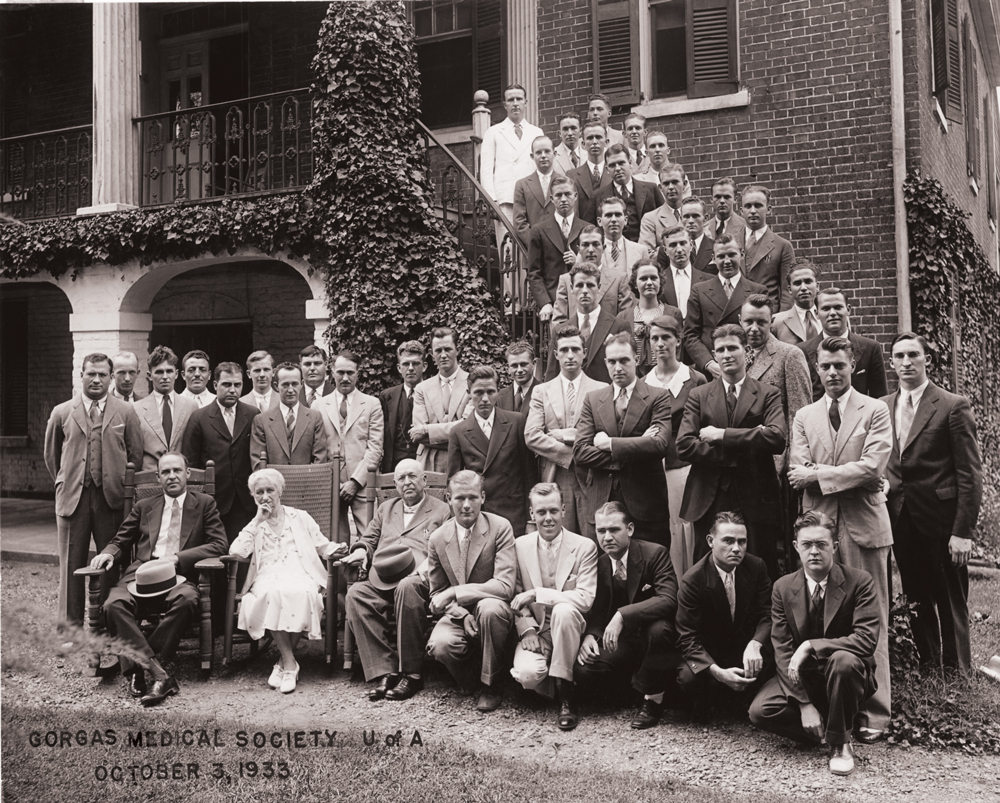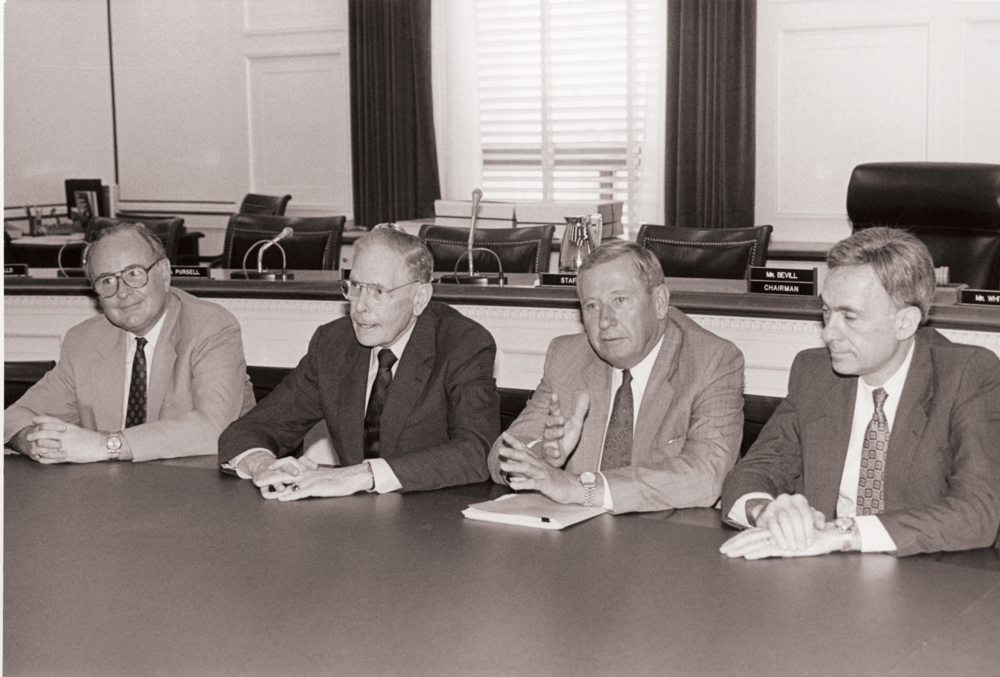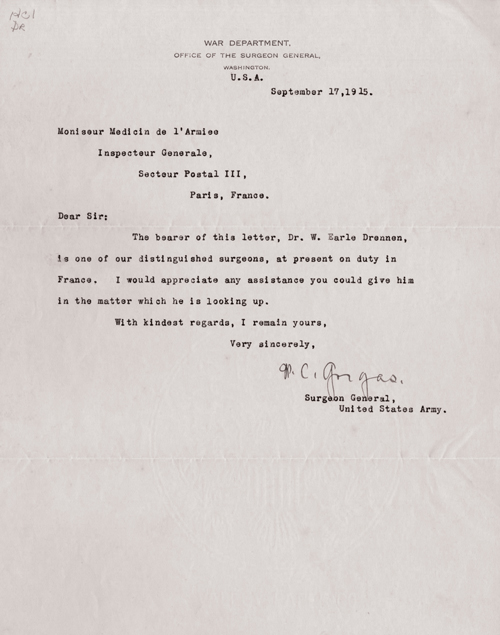 William Crawford Gorgas, M.D., when he was surgeon-general of the U.S. Army.Alabama native William Crawford Gorgas, M.D., (1854-1920) dedicated most of his professional life to conquering mosquito-borne illnesses like malaria and yellow fever. While serving as the U.S. Medical Corps’ chief sanitary officer in Havana after the end of the
William Crawford Gorgas, M.D., when he was surgeon-general of the U.S. Army.Alabama native William Crawford Gorgas, M.D., (1854-1920) dedicated most of his professional life to conquering mosquito-borne illnesses like malaria and yellow fever. While serving as the U.S. Medical Corps’ chief sanitary officer in Havana after the end of the
Spanish-American War, Gorgas successfully implemented new sanitation measures—including draining ponds and swamps, fumigation, mosquito netting, and public water systems—designed to reduce mosquito infestation. He later employed those strategies to clear the Panama Canal zone of yellow fever, enabling the canal's successful completion.
Born in Toulminville, Ala., Gorgas graduated from Bellevue Medical College in New York City in 1879. After serving with the U.S. Medical Corps, Gorgas was appointed to the Canal Commission in 1907 and was a U.S. delegate to the first Pan-American Scientific Congress in Chile in 1908. In December 1913, President Woodrow Wilson appointed Gorgas surgeon general of the Army, a role he served in until 1918. Gorgas suffered a stroke while in London in 1920 and died there on July 4.
The Gorgas Memorial Institute was established soon after his death as a medical research institution dedicated to tropical and preventive medicine. In 1928, Congress authorized federal funding for the institute’s laboratory in Panama.
When federal support was eliminated in 1992, the Gorgas Institute was moved to UAB. In 1995, UAB reinstituted the Gorgas Course in Clinical Tropical Medicine, a diploma course operated as a cooperative effort between UAB and the Universidad Peruana Gayetano Heredia in Lima, Peru. At UAB, the course is managed by the School of Medicine’s Division of Infectious Diseases and the Gorgas Center for Geographic Medicine with collaboration by the School of Public Health’s Department of Epidemiology and the Sparkman Center for Global Health. Today it is renowned as one of the world’s premier training sites in tropical medicine.
By Tim L. Pennycuff and Jane Longshore

